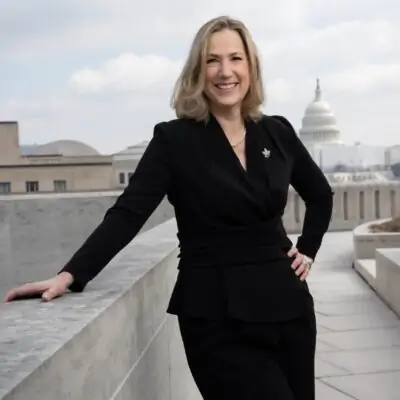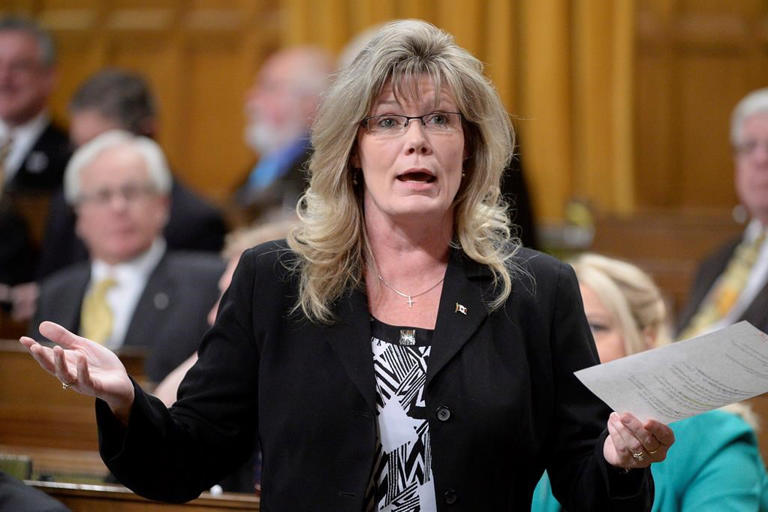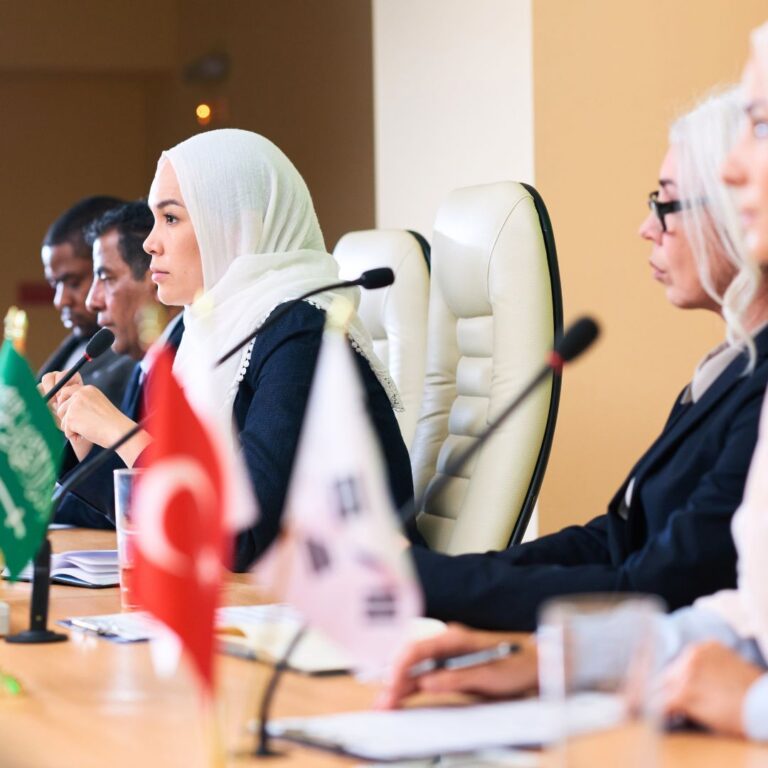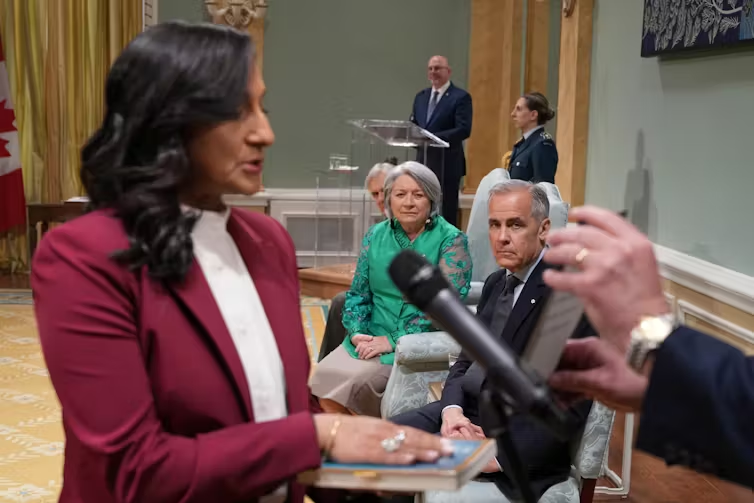Jyoti Gondek – the first female Mayor of Calgary
Jyoti Gondek is the first female Mayor of Calgary – a leader who learned the value of compassion and empathy as the daughter of immigrants who came to Canada when she was a child. In this thought-provoking conversation with Jennifer and Catherine, Mayor Gondek discusses the importance of authenticity, the challenges of being a woman in politics, and the need to address polarization in society. She shares her perspective on the role of social media in politics, the power of data-driven decision-making, and her commitment to making life better for the people she serves.
Discover how Mayor Gondek’s unique background and unwavering dedication have shaped her approach to leadership and her vision for a more inclusive and compassionate future. Tune in to gain valuable insights and inspiration from Mayor Jyoti Gondek’s remarkable journey in this engaging episode.
Note: This transcript has been edited for clarity and length.
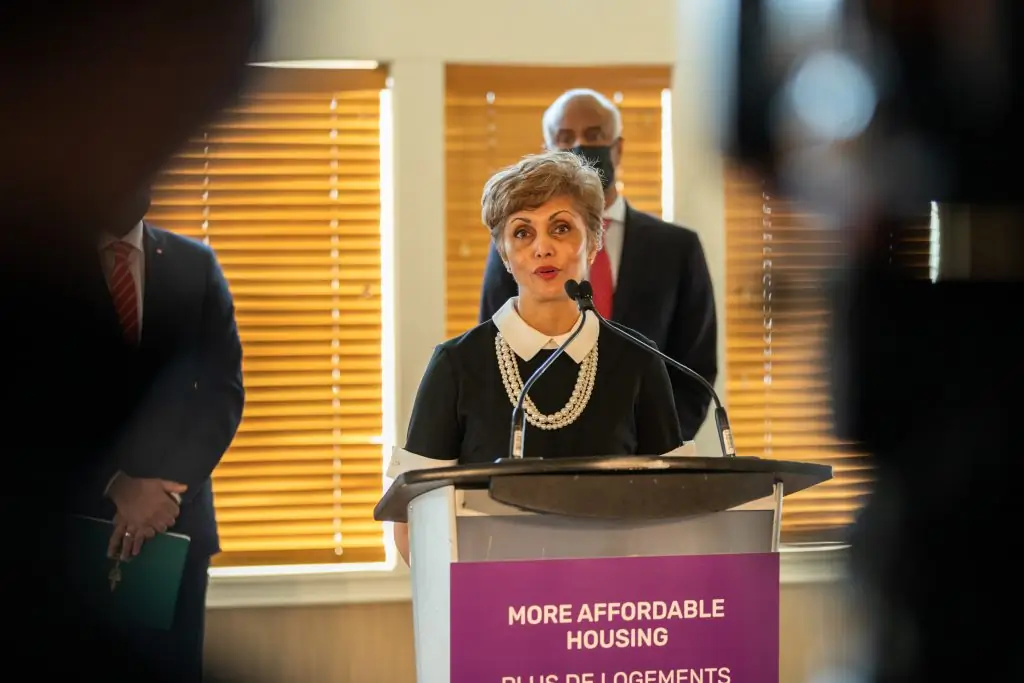
Immigration journey and lessons in resilience
Jennifer Stewart: You were born in London, England, and grew up in Manitoba. Why did your family decide to come to Canada?
Mayor Gondek: While we were living in England, it became apparent to my mum and dad that my dad was going to struggle being a barrister there because racism against people of Indian origin was pretty high. So they thought moving to Canada would be a better option. When I was four, we moved to Winnipeg and Dad practiced law in Winnipeg for a couple of years.
It was tough there too because people didn’t necessarily like seeing a man in a turban. My dad actually removed his turban and cut his hair so he could get good work.
Jyoti Gondek
He ended up being the district registrar within the land title office in a little town called Neepawa.
My childhood was very much like other prairie kids. The only difference was that as the only brown kid in town, there was a certain sentiment that was uncomfortable. I remember talking to my parents about some of the racism I faced when I was little, and they always said, “Make sure that you remember how terrible it felt so that you stand up against those kinds of injustices when you see them happening to others and use that pain for a good purpose.” I’ve carried that with me all my life.
My parents told me, ‘Remember how terrible it felt [to experience racism] so that you stand up against those kinds of injustices when you see them happening to others and use that pain for a good purpose. I’ve carried that with me all my life.
Jyoti Gondek
Catherine Clark: That’s a pretty big thing for your dad to have to remove his turban and cut his hair in order to, I guess fit in? Did they talk about how that felt for them?
Mayor Gondek: We had great dialogue as I got older, and especially when I was a young adult, about the toll that it took on them. But when I was a kid, both of them would try to explain things to me in a manner that I could understand. I remember saying to my dad, “The kids in school, my classmates, used to call you a genie dad because of your pag, your turban.” And he said, “Did it bother you?” And I said, “It did bother me because you know, you’re not a genie. And they should understand what a pag is.” And he said, “Yep, there’s not enough of us right now that they understand it. So it’s our job to educate people.”
They always made sure they impressed upon me that my job was to stand up for other people and to educate others around the fact that difference is not a bad thing. It should be appreciated.
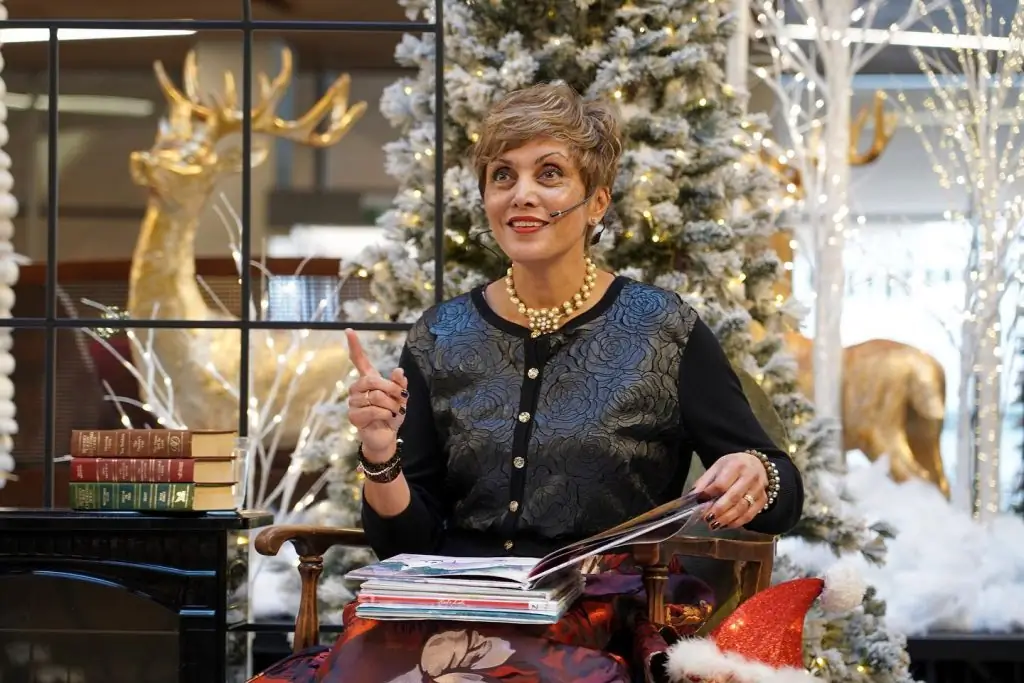
Jennifer Stewart: Mayor, you worked a few jobs in retail and sales. What did you learn from these jobs? And do you take any of those lessons with you today?
Mayor Gondek: Absolutely. All of my early jobs were in retail, and the thing that I learned is people appreciate honesty. That element of authenticity and honesty is something that I’ve always valued. And you know, being in sales roles that young, from age 16 on, you learn that not everybody is going to be nice to you all the time, and that’s okay. You chalk it up to someone having a bad day, or it’s just not the right fit, and you move on.
Being in sales roles that young, from age 16 on, you learn that not everybody is going to be nice to you all the time, and that’s okay.
Jyoti Gondek
Catherine Clark: It’s not a lot of fun when you’re on the receiving end of someone else’s bad day. But I guess the interesting thing is that you learned all of these lessons that helped to shape a more compassionate, more empathetic approach to how you deal with people.
Mayor Gondek: Yeah, I think if you can lead with compassion, you’ll be okay. Because you’re ultimately serving people. If you can put yourself in someone else’s shoes, or at the very least take the time to listen to them to understand where they’re coming from, you gain a better perspective on the decisions that you have to make and how you need to communicate them.
Compassion is the greatest quality a leader can have.
Jyoti Gondek
Catherine Clark: I wanted to ask you about Wainwright, because my grandma was from Wainwright, and Jen lived in Wainwright with her husband when he was in the military.
Mayor Gondek: My husband, when he finished his degree at the University of Manitoba, was trained in geological engineering, so we kind of figured that he would get into the energy sector at some point. But this offer came from the Department of National Defence for him to build a barracks block in Wainwright. So we went, and it was tough for me to get a job there. I was either overqualified for things I applied for, or I just didn’t have the right mix.
I ended up getting a job at the Wainwright credit union doing marketing, using my data analysis and social science skills from my sociology degree. I took that job and parlayed it into an opportunity with Credit Union Central Alberta in Calgary in 1997, so we moved there, and Todd got three job offers in the first two days he was here, so it was a good move.
Jyoti Gondek about being the first female Mayor in Calgary’s history
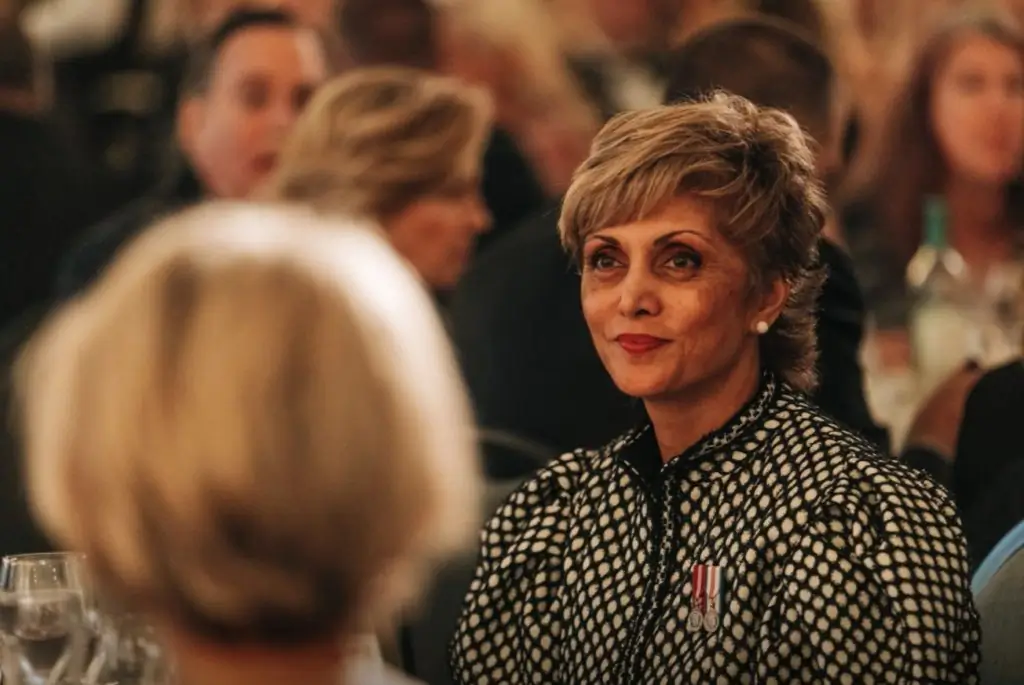
Jennifer Stewart: Was it a tough decision to run for council?
Mayor Gondek: When I made the decision in late 2016, it was really about marrying all the things I was doing in my life. My professional job involves educating students on commercial real estate and really helping the land development industry and homebuilding industry build great communities. And my volunteer work was at Calgary Planning Commission, which is a commission of counsel. And I was on some other committees; I was active in my community. And I thought, instead of all of these multiple ways of trying to influence change, why don’t I try to get a seat at the table, and then I can actually be a decision maker? So that’s why I ran.
I’ve come to learn that if you’re a woman, and you express any kind of emotion, it is viewed as being an affront to the person asking the question. And even to this day, as recently as today, there’s an article written about my demeanor, instead of my decisions or my policies. You get used to it. It’s not great. There are other members of council that have done some pretty horrible things. I don’t see opinion pieces being written about their demeanor or their actions. So women get treated differently.
The fact that I’m a woman in this role is significant for our future.
Jyoti Gondek
Catherine Clark: You’re the first female Mayor in Calgary’s history. And I wondered whether you thought that we’ve moved beyond the stage of focusing on the gender of our political leaders. But it seems that you don’t think we have.
MayorGondek: I run into people all the time who say, ‘It is so good to see you in that seat, because it gives us hope that more women will follow.’ And that’s so important. So in some ways, highlighting the fact that I’m a woman in this role is very important for our future. And in other ways, it is interesting, because people write about what I look like, what I’m wearing, my tone, and those things don’t happen to a man in this kind of position.
Navigating challenges and polarization
Jennifer Stewart: What surprised you the most on a personal level about the job?
Mayor Gondek: Anyone who’s done a job like this will say to you, you can never do all of the things and it will frustrate you. And they’re 100% right! We get requests all day every day. And saying ‘no’ to them is really hard to do. You have to learn how to decline some things. And it’s really hard to do. That’s something that I didn’t anticipate being as intense as it is.
The other thing that surprised me, in a disappointing way, is the extent to which polarization continues in our society. I thought this would dissipate. I thought we were stronger than this. I thought we had progressed far enough. And we haven’t.
Jennifer Stewart: How do we get beyond this? How do we have conversations and come to some sort of consensus while still honoring people’s differences of opinion?
Mayor Gondek: Politically, leaders relied on social media a little too heavily. We became very comfortable tweeting out our opinion, or posting something on Instagram, and just letting it be out there. And we relied a lot less on mainstream media because we thought we could get our message out ourselves. And as a result of that, we weakened the system. And by weakening the system, the folks that want to spread misinformation and mistruths took over the platforms that we thought we had full control of.
We weakened the system, which allowed the folks that want to spread misinformation and mistruths to take over the platforms that we thought we had full control of.
Jyoti Gondek
So I think that’s on us to some degree. I think it’s really important now for me, or anyone in my kind of position, to make sure you’re available at a media scrum and to make sure that you are answering the phone when someone wants to talk to you. I think that’s one side of it.
And I think the other side is this: we have become those people who have to fight back against injustices like they did in the 60s and 70s. Many people are not ready because we’ve been complacent over time. We are yet again at a place where we have to fight for women’s rights, we have to fight for children’s rights, we have to fight for 2SLGBTQ plus rights. The fight is on, and we better be ready for it because otherwise, the wrong side is going to take over a lot of institutions.
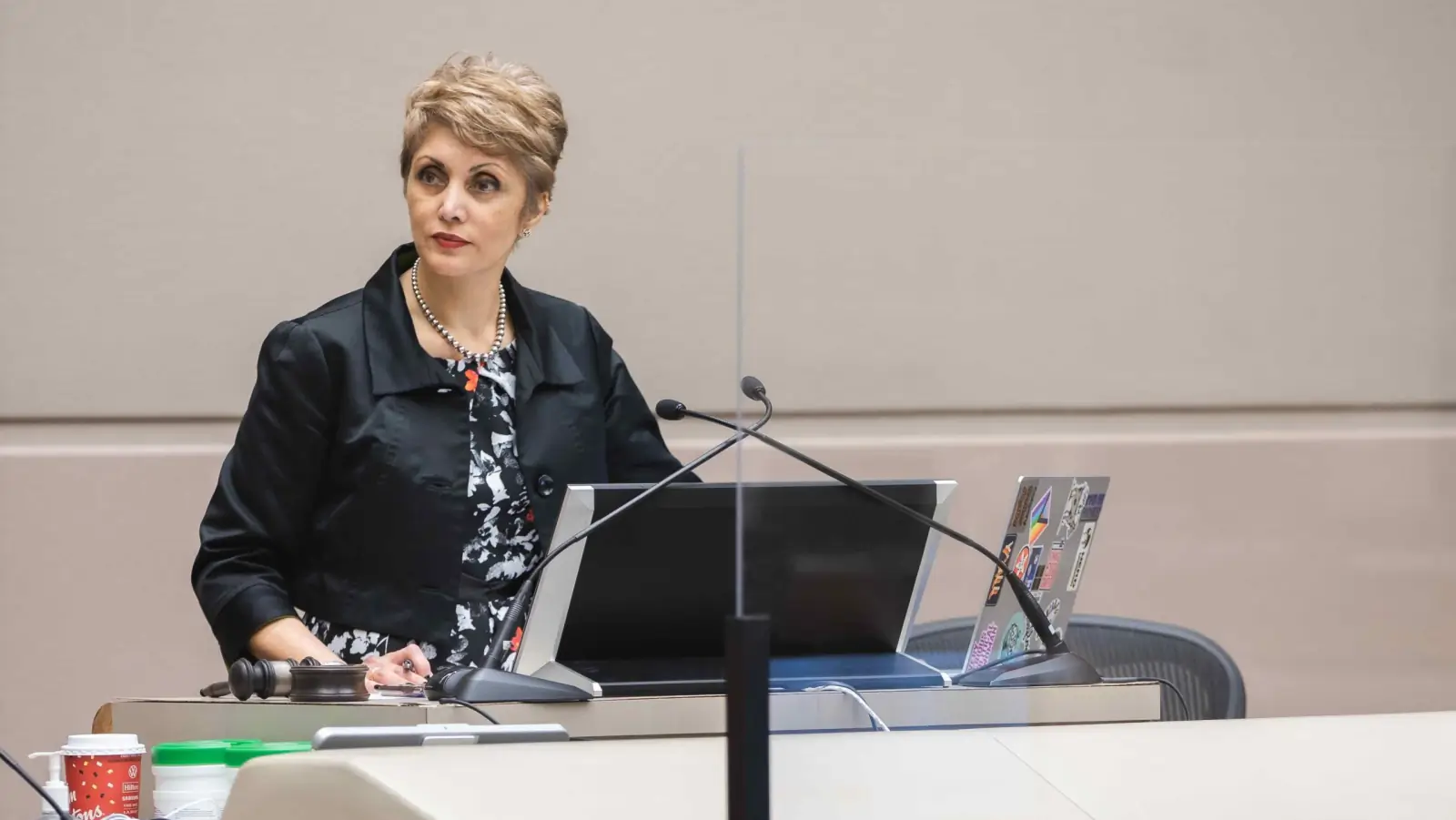
Catherine Clark: You made a comment along the lines that you just wish that people could put aside their ideologies and focus on the solutions. How do you proceed when you’re confronted with a problem or with an issue?
Mayor Gondek: It’s interesting to live in a position like mine, where I’m not tied to a political party. I don’t have to demonstrate partisanship. I can actually serve the public by looking at the empirical evidence, by making strong data-driven decisions, and by making strong moral decisions as well, because many of our decisions rely on our morality and our sense of good.
I don’t identify as a liberal or a conservative. I am somewhere in the middle of those two things. It was uncomfortable for people at first, but it’s given me the ability to work with both orders of government, regardless of which party, and we can get some things done because we rely on the facts. Housing is a really good example. We’ve got some disparity in the amount of funding that we’re receiving in Calgary for affordable housing solutions. So I’ve gone to both orders of government and said, “We need to do better. Here’s what the numbers are telling us.” So I park politics to the side when we need to get things done. I think in practice, if you can focus on making life better for the people you serve, you’ll be okay.
Mayor as a lifestyle
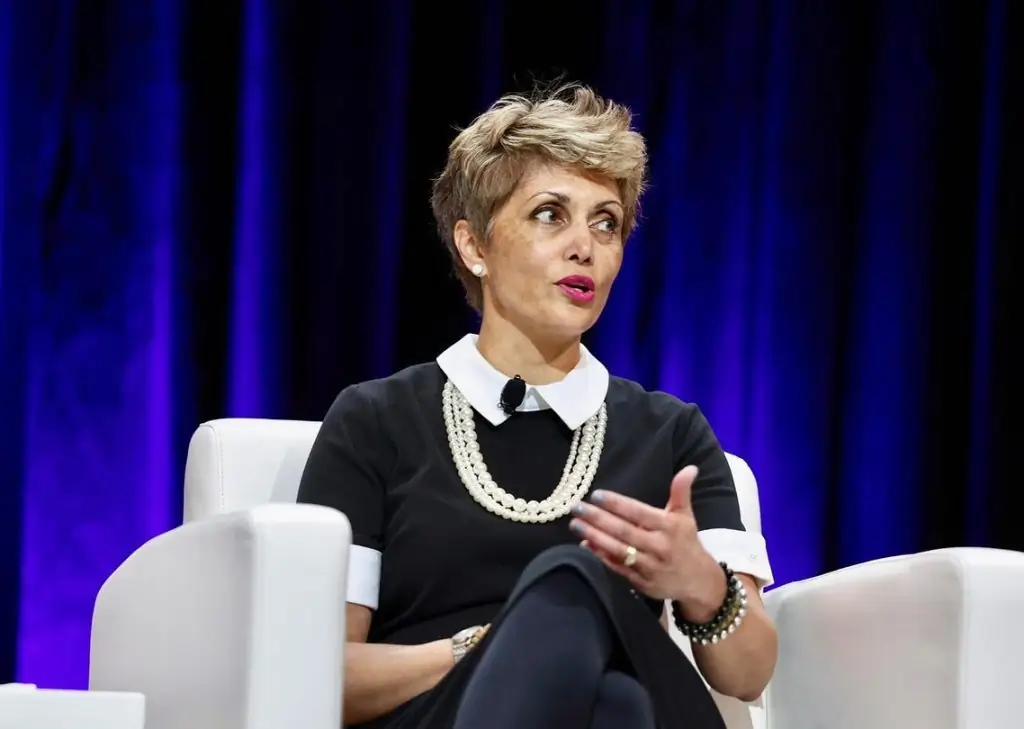
Jennifer Stewart: Being a mayor is not a job, it is a lifestyle. It is a commitment. Who helps you recharge your battery? And do you ever mentally turn off, or is it always ticking in the back of your mind?
Mayor Gondek: You need to make sure that the team in your office is strong, and you have chosen people to do this job who will support you on the days that you’re doing really difficult work, and who can actually laugh with you at all of the things that go on that are worthy of a good belly laugh.
And at home, you need to carve out that time for the people that are important. The trickiest thing for me is not being able to spend enough time with my mom who’s aging. We stay connected in kind of a weird way. But that’s the thing that tugs at you the most, is making sure that not only you can be in person for your family and your loved ones, but that they know how much you care about them. That’s tough.
Advice for women
Catherine Clark: Are you willing to share one piece of advice with women?
Mayor Gondek: I think the number one thing you need to do, if you’re considering elected office, is be yourself. You need to be authentic; you need to be real. It helps people connect with you.
If you’re considering elected office, be yourself. Be authentic, be real. It helps people connect with you.
Jyoti Gondek
If you take on an elected position, and you think you can be yourself in your private life and you can be a different character in your public life, it will break you. I’ve seen many good elected officials walk away from the role because it was too hard to put on that mask.

